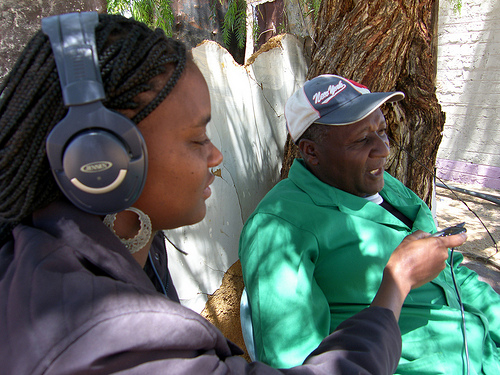For many of us, it is already clear that internet is the most common and fast source of news, both for national and international news. This trend has a lot to do with structures, culture and technology access that are embedded in our European societies.
But things look different when we move throughout the rest of the world. Americans for example, state that local televisions are still the no. 1 source of news for the majority of population. This means that newspapers, international televisions and internet come immediately after.
Surveys conducted in Africa instead, show very different results. According to the latest surveys (Afrobarometer, Gallup) in sub-Saharan Africa a median of nearly 6 in 10 respondents say that national radio is the most important medium they use to keep well-informed about things happening in their country. When asked about international news, the answers are similar: national radio (nearly 30%) and international radio (24%).
Low literacy levels and poor circulation are two main reasons for high radio use. Newspapers are out of access for many Africans and the cost of purchasing a television is also prohibitive.
Internet use, despite the slow increase of Internet cafes in many major cities, is still slightly nominal.
Two exceptions are South Africa and Sudan. In South Africa, a country that shows the highest per-capita GDP in Africa, more citizens say they rely more on national television, but radio is the close second. In Sudan (excluding Darfur), citizens place nearly equal importance on radio and television to stay up-to-date.
And then another curious fact. In some African countries ranging from 59% in Uganda to 14% in Mauritania, citizens affirm that word of mouth is still a very important source of news for national and international news. One of the main reasons is the strong lack of accountability between governments, institutions and population.
Almost two thirds of Africans say that media should be effective as a watchdog, but it seems that a great proportion – and in some countries large majorities- are aware of the lack of media freedom and they also say that the news media often abuses its freedom by publishing lies.
But there are many data showing how this is just a phase. Many countries in Africa are developing and they will soon perform strong changes both in the economic and social system. Indeed, Afrobarometer survey adds: “But there are notable shifts in the media environment. Across 16 countries tracked since 2002, saily use of radio has dropped markedly (..). Daily use of newspapers is also down, from 13% to 9% between 2001- and 2013. Television, in contrast, is gaining audience, climbing from 26 to 33%.”
Last but not least, internet use. Although it is still very hard to find internet access in Africa (even in South Africa, where over an half of all households didn’t have any access in 2013), many citizens owe a mobile device and mobile networks can often be the only way that people can be connected.
So the next huge challenge – but also an incredible business opportunity- for many newspapers and media companies across Africa and the world who can get an huge number of new customers getting online, is to engage with these citizens through the net now. And to find out how they will want to use their mobile phones to get informed in the future.

